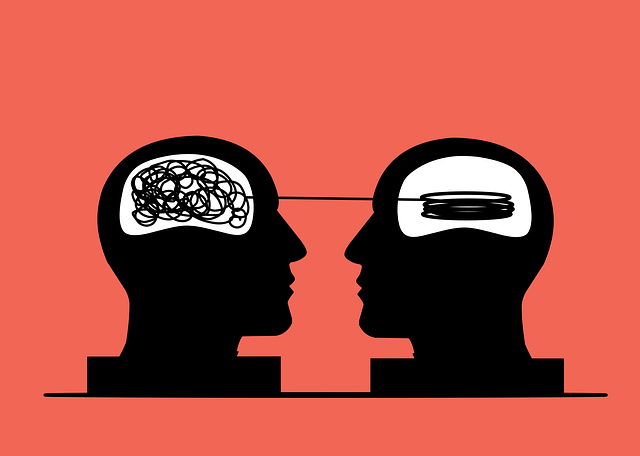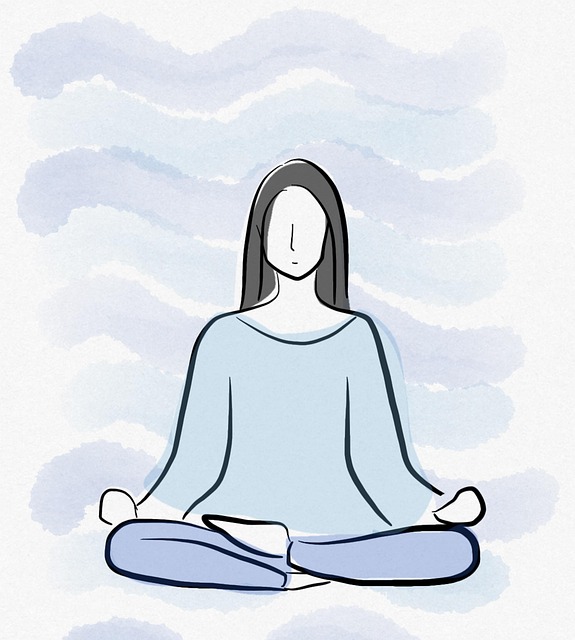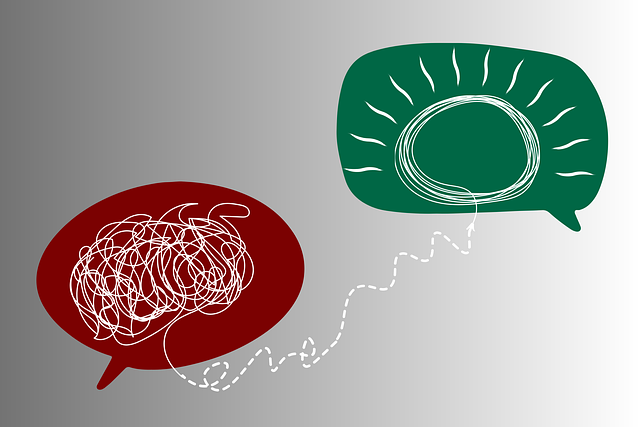Adult Adjustment Disorder (AAD) is a mental health condition caused by traumatic events, leading to maladaptive coping and significant daily impacts. Effective therapy focuses on building resilience through techniques like journaling and conflict resolution skills training. Positive thinking exercises, such as gratitude journaling and mindfulness practices, empower individuals to challenge negative thoughts, improve self-esteem, and regulate emotions. Incorporating these practices into daily routines, alongside professional therapy, significantly aids adults with AAD in managing their mental health and adjusting to life changes. Tracking progress and celebrating successes in therapy further enhances stress reduction methods.
Positive thinking exercises offer a powerful therapy for adults adjusting to life’s challenges, particularly those grappling with Adult Adjustment Disorder (AAD). This article explores how cultivating optimism can be a game-changer in managing symptoms and enhancing overall well-being. We’ll guide you through understanding AAD, leveraging the benefits of positive thinking, and creating a tailored exercise routine. Learn practical techniques for daily implementation, track your progress, and celebrate successes as you transform your mindset and life trajectory.
- Understanding Adult Adjustment Disorder: Symptoms and Impact
- The Power of Positive Thinking: A Therapeutic Approach
- Creating a Positive Thinking Exercise Routine
- Practical Techniques for Daily Implementation
- Tracking Progress and Celebrating Success
Understanding Adult Adjustment Disorder: Symptoms and Impact

Adult Adjustment Disorder (AAD) is a mental health condition that can significantly impact an individual’s daily life and overall well-being. It often stems from traumatic or stressful life events, causing individuals to develop maladaptive coping mechanisms. Symptoms manifest as persistent feelings of anxiety, depression, irritability, and difficulty managing emotions in various situations. AAD can lead to problems in personal relationships, work performance, and overall functionality.
The impact of AAD is profound, hindering one’s ability to adjust and cope with life transitions. It may result in low self-esteem, poor decision-making, and even physical health issues due to prolonged stress. However, therapy for adults with adjustment disorder plays a pivotal role in building resilience. Techniques like mental wellness journaling exercises can help individuals process their emotions and gain insights into triggers. Additionally, conflict resolution skills training contributes to managing interpersonal challenges effectively.
The Power of Positive Thinking: A Therapeutic Approach

The power of positive thinking is a therapeutic approach that has gained significant attention in promoting emotional well-being and mental health. By cultivating optimistic thoughts and reframing negative experiences, individuals can experience a profound shift in their perspective, leading to improved adjustment skills and overall resilience. This technique is particularly beneficial for adults with adjustment disorders, helping them navigate life’s challenges more effectively.
Implementing positive thinking exercises as part of therapy sessions can empower clients to challenge negative thought patterns and beliefs. Healthcare provider cultural competency training emphasizes the importance of creating a supportive environment where individuals feel safe to explore and express their emotions. Through mental illness stigma reduction efforts, these therapeutic practices foster open communication, encouraging clients to embrace positive affirmations and strategies for emotional well-being promotion techniques.
Creating a Positive Thinking Exercise Routine

Implementing a positive thinking exercise routine can be a powerful tool for adults with Adjustment Disorder who seek to enhance their mental wellness. This involves dedicating a specific time each day to cultivate gratitude, reframe negative thoughts, and practice self-compassion—all of which are communication strategies that promote resilience. Start by identifying a quiet moment in your day, perhaps during morning coffee or before bed. Use this time to engage in exercises like keeping a gratitude journal, where you write down three things for which you’re thankful. This simple act can boost confidence and shift your perspective towards the positive aspects of life.
Consider incorporating mindfulness practices such as meditation or deep breathing exercises. These techniques not only help calm the mind but also empower individuals to better manage their emotions. Over time, consistent practice of these mental wellness strategies can make a significant impact, enabling adults with Adjustment Disorder to navigate challenges more effectively and lead happier, more fulfilling lives.
Practical Techniques for Daily Implementation

Incorporating positive thinking exercises into daily routines is a powerful tool for adults with Adjustment Disorder navigating their mental wellness. Simple yet effective techniques can be seamlessly integrated into everyday life, offering a sense of calm and empowerment. One practical approach is mental wellness podcast series production, providing accessible guidance on various aspects of self-improvement. These podcasts offer a rich self-esteem improvement resource, teaching listeners to challenge negative thoughts and replace them with positive affirmations.
Additionally, mindfulness practices like journaling or deep breathing exercises can aid in mood management. By dedicating just a few minutes each day, individuals can learn to recognize and regulate their emotions more effectively. These techniques are not only beneficial for those seeking therapy for adults adjustment disorder but also serve as valuable tools for anyone striving for improved mental wellness.
Tracking Progress and Celebrating Success

Tracking progress is a vital component of any positive thinking exercise regimen, especially for those dealing with adjustment disorders. Regularly reviewing one’s thoughts and behaviors allows individuals to identify patterns and measure their improvement. This process can be as simple as keeping a journal where they note down daily reflections, achievements, and areas that still require work. By doing this, adults with adjustment disorders can visually see their progress, which is an encouraging step towards fostering self-esteem and resilience.
Celebrating success, no matter how small, is another powerful tool in the therapy box for adults adjusting to challenging life changes. Acknowledging positive shifts in thoughts, such as increased optimism or improved conflict resolution techniques, reinforces new, healthier habits. This recognition can be incorporated into daily routines, helping individuals manage stress reduction methods more effectively. For instance, successfully applying self-esteem improvement strategies in social interactions could be a significant milestone worth acknowledging, providing motivation to continue the positive thinking journey.
Implementing positive thinking exercises can be a transformative therapy for adults dealing with Adjustment Disorder, helping them manage symptoms and improve overall well-being. By consistently practicing these techniques, individuals can create a healthier mindset, enhance resilience, and navigate life’s challenges more effectively. This structured approach, combined with tracking progress and celebrating successes, empowers those affected to lead fulfilling lives despite the disorder’s impact. Remember, with dedication and the right tools, positive thinking can be a powerful game-changer in managing Adjustment Disorder symptoms.










